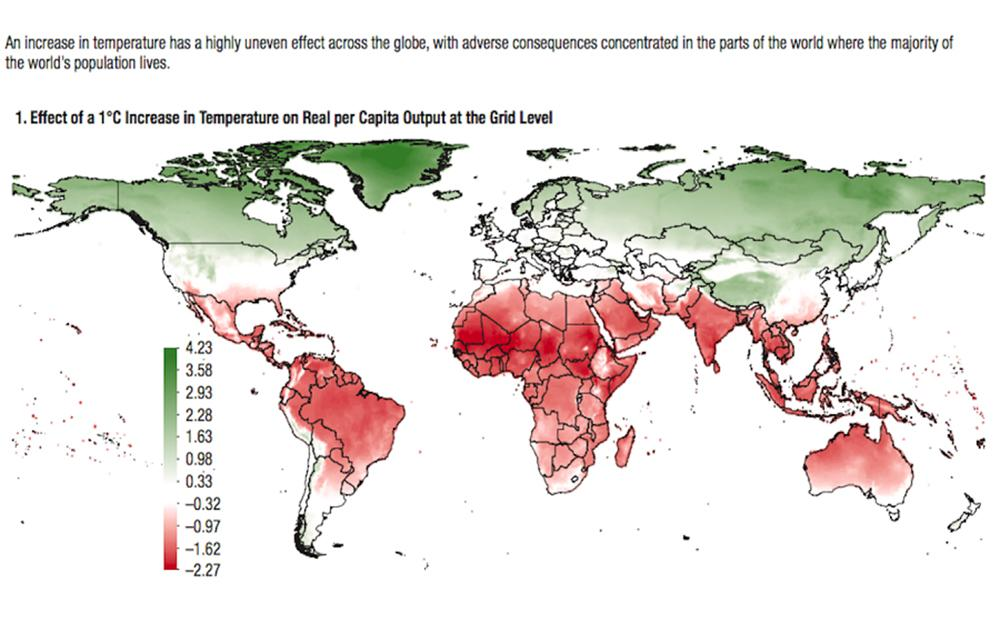
By Eric Margolis
[divider]
[dropcap]L[/dropcap]ast week we took a look at Paris Agreement ‘heroes’. India, Morocco, and Costa Rica have all put forward impressive and ambitious climate goals, aspiring toward contributions substantial enough to even make up for other countries’ distinct lack of climate policy and progress. But Paris Agreement ‘heroes’ like these three countries are few and far between. The vast majority of the world’s nations are not doing nearly enough to halt the probable significant environmental and social damages of climate change. Even the goals set by the generally progressive European Union to limit warming to 2 degrees Celsius were rated as “insufficient” by Climate Action Tracker.
In this week’s edition, we’ll turn an eye to a few countries that are experiencing developments, or even implementing policy, that actively compromise the world’s efforts to meet the objective set in the Paris Agreement. This post isn’t so much to paint these countries as “bad guys”, but more to show that many nations around the world face unique circumstances that pose significant problems for the rest of the world’s greater climate goals.
Russia’s Just Fine With Warming
Russia remains the largest global emitter that has yet to sign the Paris Agreement. In spite of the Russian government speaking out multiple times in favor of the Agreement and in favor of climate policy (especially after Trump declared the US would withdraw), there has been zero tangible action in Moscow. The government has advocated its own current strategy and policy plan of keeping emissions at 70% of 1990 levels by reducing fossil fuel emissions in some areas of the economy to allow for economic growth in others. While Russia is likely to meet these targets, such climate strategies would, if implemented on a global scale, allow for well over 4 degrees Celsius of total warming. Russia’s most telling act thus far is to not sign the Paris Agreement.
Though the Russian Partnership for Climate Protection is fighting for ratification, it is unlikely that the government will act because of vested corporate interests in Russia. Nationally owned fossil fuel companies have enormous say in Russia’s climate policy. Russia also stands to gain the most from climate change, possibly out of any country. Reduced snowfall and more agriculture-friendly conditions in Siberia could lead to substantial economic growth for the entire country. And based on policy actions up until now, it seems that Russia is angling for this outcome,, no matter the consequences the rest of the world might face.
The Reemergence of Deforestation in Brazil
Brazil was an early signee of the Paris Agreement and remains committed to its objectives. Brazil’s nationally determined contributions are about on par with the European Union and other developed countries’ targets, capable of limiting warming to less than 3 degree Celsius. Brazil has met some positive goals, such as increasing its use of renewable energy , and has committed to decarbonizing the energy sector. However, these policy actions could amount to nothing if Brazil doesn’t prevent misuse of land and deforestation, national problems which could have ripple effects well beyond Brazil.
The Amazon is a carbon sink, land that captures and stores carbon from the atmosphere, for the entire world. Deforestation has disastrous consequences, as it permanently gets rid of land that previously acted as a carbon sink. Unfortunately, deforestation in Brazil has increased sharply since 2015, and the deforestation in 2018 was the worst in more than a decade. The decrease in deforestation from 2004-2012 was due to market factors, as the Brazilian government has essentially no sound regulation mechanisms for deforestation. Brazil’s Paris Agreement targets included zero illegal deforestation by 2030. Recent developments have rendered this target basically impossible to achieve, which makes Brazil’s already mediocre climate targets unlikely to be met–a serious problem for a country that accounts for 2.5% of the world’s global CO2 emissions.
Turkey’s Love Affair With Coal
Turkey is a country that represents the Earth’s coal problem. The United Nations Framework Convention on Climate Change has established that halting coal use is one of the most important and most achievable methods to mitigate climate change. And yet coal remains king, not just in Turkey, but in much of the developed and developing world. In Turkey, and elsewhere, powerful corporate and government interests remain invested in coal, which is both cheap and abundant. Benefitted from the quick profits coal can provide, Turkey has overestimated its energy demand by as much as 25%, and as a result, has implemented policy to overinvest and over rely on coal. Coal is not just a greenhouse gas, but also an environmental, health and safety hazard, yet the world just can’t seem to give it up.
Turkey’s commitment to coal is the core reason the country’s nationally determined contributions remain critically insufficient. If the rest of the world loved coal as much as Turkey, we would see warming far surpassing 4 degrees Celsius by 2100. But as it is Turkey’s most abundant natural resource, entrenched market and political factors remain substantial barriers. Turkey is a perfect example of just how tricky responding properly to climate change is, despite the paramount importance of facing it. The abundance of coal and pressure to generate economic growth have seriously stunted Turkey’s hopes of implementing proper climate policy anytime soon.
[hr]
Eric is a senior in Davenport College. You can contact him at eric.margolis@yale.edu.